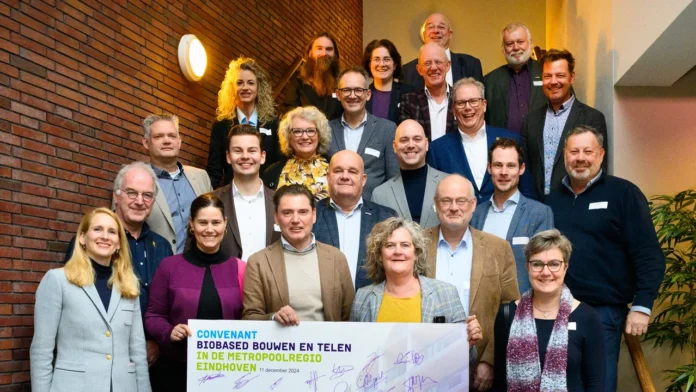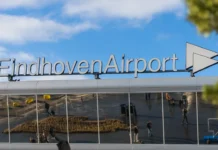Regional municipalities agree on bio-based building.
Nineteen municipalities in Southeast Brabant have reached an agreement on ‘bio-based building and growing’. They aim to further promote the use of natural building materials and the cultivation of crops specifically for this purpose.
Bio-based materials, such as hemp fibre and miscanthus, are integral to the transition towards sustainable agriculture, with a focus on improving water and soil quality, as well as enhancing biodiversity. Additionally, bio-based building materials have significant potential to contribute to climate goals and large-scale circular economy ambitions.
Mieke Verhees (Eindhoven city councillor) stated, “As a regional government, we take responsibility for promoting sustainable construction.” The municipalities are working to expand the opportunities that already exist, “so that this becomes the ‘new normal’,” Verhees added.
According to the initiators, the transition of agriculture and the substantial housing task – resulting from the jump in scale – offer Brainport a great opportunity for this. After all, growing crops for biobased building materials in construction provides an alternative earning model for farmers who want to produce more sustainably.
Grow
Joep van de Ven (regional administrative leader of the Biobased Building theme and alderman of the municipality of Oirschot) ‘What could be nicer than that the houses we build in the region literally grow in the region? At the same time, using natural materials helps accelerate the transition to sustainable building and reduce CO2 emissions. Some forms of bio-based construction store CO2 themselves. So a win-win situation.’
To achieve all this, the 19 municipalities in the Eindhoven Metropolitan Region have now jointly set out several ambitions and agreements. The province of North Brabant, Water Board Aa and Maas, and Water Board de Dommel also support the municipalities. ‘Together,’ says Van de Ven, ’we are taking further steps to put bio-based building and growing even more on the map.’
Stimulate
For example, by increasing the demand for bio-based materials and including them in municipal housing policy, producing the aforementioned crops becomes even more interesting. After all, farmers are only interested if there is sufficient demand for bio-based building materials and a more or less guaranteed sale of products.
Moreover, stimulating bio-based construction fits in with the national ambition to build at least 30% of new houses with at least 30% bio-based materials by 2030.
Source: Studio040
For Eindhoven News: Chaitali Sengupta
















